Tonga
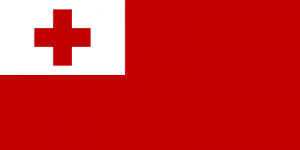
Tuku Fonua
In the early 1800’s the first king of a united Tonga, King Siaosi Tupou i, celebrated the “giving of Tonga to God” in the northern Tongan islands of Vava’u at a place forever known as Pouono. This film chronicles the event and its significance as described by several renowned scholars of ancient Tongan and Polynesian history. It is a story of great devotion and faith in the face of European colonisation in the Pacific. Presented by Dr Eric B. Shumway and produced by myself with Dr. Vernice Wineera, this program will open your eyes to the unique culture and customs of Tonga as they relate to this pivotal event of almost 200 years ago.
Tonga ([ˈtoŋa]; Tongan: Puleʻanga Fakatuʻi ʻo Tonga), officially the Kingdom of Tonga, is a Polynesian sovereign state and an archipelago comprising 176 islands with a surface area of about 750 square kilometres (290 sq mi) scattered over 700,000 square kilometres (270,000 sq mi) of the southern Pacific Ocean. Fifty-two of these islands are inhabited by its 103,000 people.
Lengthwise, the kingdom stretches over a distance of about 800 kilometres (500 mi) in a north-south line located about a third of the distance from New Zealand to Hawaii. It is surrounded by Fiji and Wallis and Futuna (France) to the northwest, Samoa to the northeast, Niue to the east, Kermadec (part of New Zealand) to the southwest, and New Caledonia (France) and Vanuatu to the west.
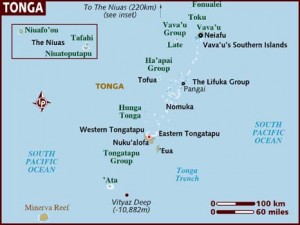 Tonga also became known as the Friendly Islands because of the congenial reception accorded to Captain James Cook on his first visit there in 1773. He happened to arrive at the time of the ʻinasi festival, the yearly donation of the first fruits to the Tuʻi Tonga (the islands’ paramount chief) and so received an invitation to the festivities. According to the writer William Mariner, the chiefs wanted to kill Cook during the gathering but could not agree on a plan.
Tonga also became known as the Friendly Islands because of the congenial reception accorded to Captain James Cook on his first visit there in 1773. He happened to arrive at the time of the ʻinasi festival, the yearly donation of the first fruits to the Tuʻi Tonga (the islands’ paramount chief) and so received an invitation to the festivities. According to the writer William Mariner, the chiefs wanted to kill Cook during the gathering but could not agree on a plan.
Tonga is one of the few countries in the world that have successfully resisted European colonization, and the Polynesian kingdom has never lost its sovereignty to a foreign power. In 2010 Tonga took a decisive step towards becoming a fully functioning constitutional monarchy, after legislative reforms paved the way for its first partial representative elections.
Etymology
In many Polynesian languages, Tongan included, the word tonga means “south”, as the archipelago is the southernmost group of islands of central Polynesia. In Tongan, the name is pronounced as [ˈtoŋa], and it is commonly pronounced as/ˈtɒŋə/ or /ˈtɒŋɡə/ in English. The name of Tonga is cognate to the Hawaiianregion of Kona.
An Austronesian-speaking group linked to the archaeological construct known as the Lapita cultural complex reached and colonised Tonga around 1500–1000 BCE. Scholars have much debated the exact dates of the initial settlement of Tonga, but recently it has been thought that the first settlers came to the oldest town Nukuleka about 826 BCE, ± 8 years.[9] Not much is known about Tonga before European contact because of the lack of a writing system. However, oral history has survived and been recorded after the arrival of the Europeans. The Tongan people first encountered Europeans in 1616 when the Dutch vessel Eendracht made a short visit to the islands to trade.
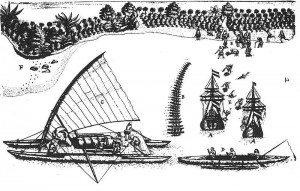 Arrival of Abel Tasman in Tongatapu, 1643, drawing by Isaack Gilsemans
Arrival of Abel Tasman in Tongatapu, 1643, drawing by Isaack Gilsemans
By the 12th century Tongans, and the Tongan paramount chief, the Tuʻi Tonga, had a reputation across the central Pacific—from Niue, Samoa,Rotuma, Wallis & Futuna, New Caledonia to Tikopia—leading some historians to speak of a Tuʻi Tonga Empire. In the 15th century and again in the 17th, civil war erupted. Into this situation the first European explorers arrived, beginning in 1616 with the Dutch explorers Willem Schouten and Jacob Le Maire (who called on the northern island of Niuatoputapu), and in 1643 with Abel Tasman (who visited Tongatapuand Haʻapai). Later noteworthy European visitors included James Cook (British Navy) in 1773, 1774, and 1777, Alessandro Malaspina (Spanish Navy) in 1793, the first London missionaries in 1797, and the Wesleyan Methodist Rev. Walter Lawry in 1822.
In 1845 the ambitious young warrior, strategist, and orator Tāufaʻāhau united Tonga into a kingdom. He held the chiefly title of Tuʻi Kanokupolu, but had been baptised with the name siaosi (“George”) in 1831. In 1875 with the help of missionary Shirley Waldemar Baker, he declared Tonga a constitutional monarchy, formally adopted the western royal style, emancipated the “serfs”, enshrined a code of law, land tenure, and freedom of the press, and limited the power of the chiefs.
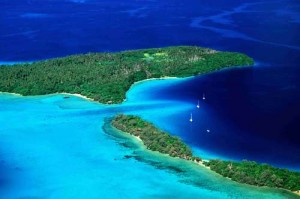 Tonga became a protected state under a Treaty of Friendship with Britain on 18 May 1900, when European settlers and rival Tongan chiefs tried to oust the second king. The treaty posted no higher permanent representative on Tonga than a British Consul (1901–1970). Although under the protection of Britain, Tonga maintained its sovereignty, and remained the only Pacific nation never to have given up its monarchical government—as did Tahiti and Hawaiʻi. The Tongan monarchy follows an uninterrupted succession of hereditary rulers from one family. In 1918 the influenza epidemic that spread through the world caused the deaths of 1,800 people in Tonga, approximately 8% of the population.
Tonga became a protected state under a Treaty of Friendship with Britain on 18 May 1900, when European settlers and rival Tongan chiefs tried to oust the second king. The treaty posted no higher permanent representative on Tonga than a British Consul (1901–1970). Although under the protection of Britain, Tonga maintained its sovereignty, and remained the only Pacific nation never to have given up its monarchical government—as did Tahiti and Hawaiʻi. The Tongan monarchy follows an uninterrupted succession of hereditary rulers from one family. In 1918 the influenza epidemic that spread through the world caused the deaths of 1,800 people in Tonga, approximately 8% of the population.
The Treaty of Friendship and Tonga’s protection status ended in 1970 under arrangements established by Queen Salote Tupou III prior to her death in 1965. Tonga joined the Commonwealth of Nations in 1970 (atypically as an autochthonous monarchy, that is, one with its own local monarch rather than that of the United Kingdom—compare Malaysia, Lesotho, and Swaziland), and became a member of the United Nations in September 1999. While exposed to colonial pressures, Tonga has never lost indigenous governance, a fact that makes Tonga unique in the Pacific and gives Tongans confidence in their monarchical system and much pride.
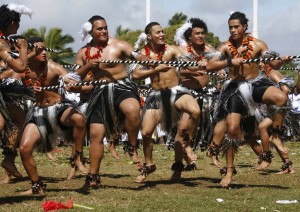 As part of cost-cutting measures across the British Foreign Service, the British Government closed the British High Commission in Nukuʻalofa in March 2006, transferring representation of British interests in Tonga to the UK High Commissioner in Fiji. The last resident British High Commissioner was Paul Nessling.
As part of cost-cutting measures across the British Foreign Service, the British Government closed the British High Commission in Nukuʻalofa in March 2006, transferring representation of British interests in Tonga to the UK High Commissioner in Fiji. The last resident British High Commissioner was Paul Nessling.


